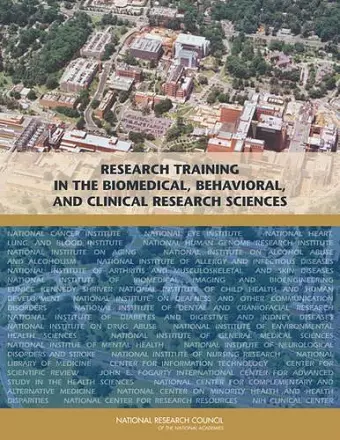Research Training in the Biomedical, Behavioral, and Clinical Research Sciences
National Research Council author Board on Higher Education and Workforce author Policy and Global Affairs author Committee to Study the National Needs for Biomedical, Behavioral, and Clinical Research Personnel author
Format:Paperback
Publisher:National Academies Press
Published:28th Mar '11
Currently unavailable, and unfortunately no date known when it will be back

Comprehensive research and a highly-trained workforce are essential for the improvement of health and health care both nationally and internationally. During the past 40 years the National Research Services Award (NRSA) Program has played a large role in training the workforce responsible for dramatic advances in the understanding of various diseases and new insights that have led to more effective and targeted therapies. In spite of this program, the difficulty obtaining jobs after the postdoc period has discouraged many domestic students from pursuing graduate postdoc training. In the United States, more than 50 percent of the postdoc workforce is made up of individuals who obtained their Ph.D.s from other countries. Indeed, one can make a strong argument that the influx of highly trained and creative foreigners has contributed greatly to U.S. science over the past 70 years. Research Training in the Biomedical, Behavioral, and Clinical Research Sciences discusses a number of important issues, including: the job prospects for postdocs completing their training; questions about the continued supply of international postdocs in an increasingly competitive world; the need for equal, excellent training for all graduate students who receive NIH funding; and the need to increase the diversity of trainees. The book recommends improvements in minority recruiting, more rigorous and extensive training in the responsible conduct of research and ethics, increased emphasis on career development, more attention to outcomes, and the requirement for incorporating more quantitative thinking in the biomedical curriculum.
ISBN: 9780309159654
Dimensions: unknown
Weight: unknown
206 pages